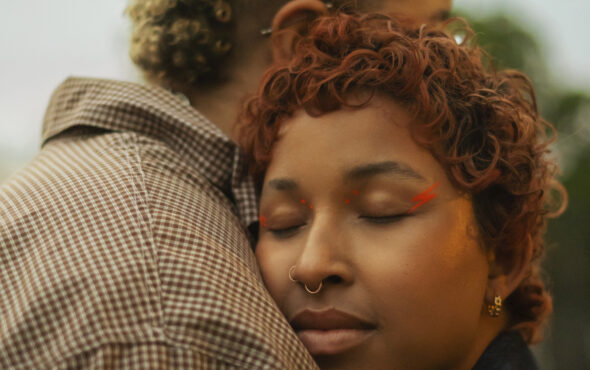
Every February is LGBTQ+ History Month. Professor Emeritus Sue Sanders has been one of the driving forces behind the month since its inception. Every year LGBTQ+ History Month has a different theme and I have enjoyed learning about LGBTQ+ identities. More than that LGBTQ+ History Month has contributed to my own sense of identity.
It was a pleasure to discuss Politics In Art: The Arc Is Long – this years’ LGBTQ+ History Month theme – with Sue Sanders, as well as her views on some of the challenges facing LGBTQ+ people today.
I began by asking Sue to tell us about this year’s LGBTQ+ History Month theme?
Every year LGBTQ+ History Month has a theme and it’s linked to the curriculum because LGBTQ+ History Month was started by School’s OUT UK, which was a charity started in 1974, and by the name you can see its focus was very much education. We’ve obviously branched out since then and the theme this year for 2022 is Politics In Art: The Arc Is Long, which we’re very excited about because, for me, while it’s crucial that we have important legislation which stops discrimination against LGBTQ+ people, legislation alone does not make the difference, you also need cultural change and obviously art plays a very important part in doing that.
Which historical figures would you like to highlight for 2022?
We come up with five faces every year which represent the full diversity of the LGBTQ+ community, which are connected to the theme. We have Doris Brabham Hatt, who is a British lesbian who was an amazing artist – should be much better known – suffragette, communist, living openly with her lesbian companion, friend and partner. Then we have Keith Haring, who is an American artist, a gay man and who is probably quite well-known in fact – done masses of work around tackling AIDS through his art. Jean-Michel Basquiat, an amazing artist, a bisexual – an amazing artist – and probably, if he was alive today, would be very powerfully connected to the Black Lives Matter movement. Mark Aguhar, artist, trans and fascinating person, who was keen to challenge sexism, racism and as she coined it fatism. Fiore de Henriquez, sculptor, her experience of being intersex influenced her work with androgyny and conjoined figures being common themes.
So excited to be part of this event telling the story of nearly 50 years of Schools OUT UK who founded LGBT+History Month, the Classroom and works with OUTing the Past to produce an international LGBT+ history festival, see you there on the 19th march. https://t.co/jnPKaj5AyT
— Professor Emeritus Sue Sanders – She/Her (@suesanders03) February 16, 2022
What do you perceive as the key LGBTQ+ rights issues in the UK now?
We’re dealing so much with anti-trans issues – it’s terrifying! It reminds me so much of where we were back dealing with Section 28. The recent public statements by Equality and Human Rights Commission coupled with a right wing backlash in the media is adding fuel to the fire. We cannot take for granted the gains that we have made and we always have to be very vigilant in this country and also abroad. We have seen a rise of anti-LGBTQ+ rhetoric in some European countries and we are still dealing with the horrific legacy that colonialism has left for LGBTQ+ rights in Africa and Asia. The way that we treat LGBTQ+ asylum claimants is absolutely totally horrific and the new Nationality and Borders Bill seeks to make things harder. Finally we are failing our LGBTQ+ young people, failing to provide a fully inclusive education and as many as 24 per cent of young homeless people identify as LGBTQ+.
Do you have an LGBTQ+ History Month message for our readers?
I think when we started LGBTQ+ History Month we were wanting to make LGBTQ+ people visible, because we weren’t – it was back in 2005 and we’d just had 15 years of Section 28. Making us visible was very important and I think we are more visible but we’re not visible enough for diversity, so that’s something that I’m very passionate about, to make sure that when we celebrate LGBTQ+ History Month, we celebrate the full diversity of the LGBTQ+ community and we don’t leave anybody behind. LGBTQ+ History Month is a chance to learn who we stand on the shoulders of – there have been so many exciting people who have done so many amazing things which we don’t know about. Learning our history to me is incredibly important and it gives us a sense of “self”. We can also use the month to start thinking about how we actually campaign, to continue to make sure that every LGBTQ+ person in this country and in the world is safe and can be proud.


